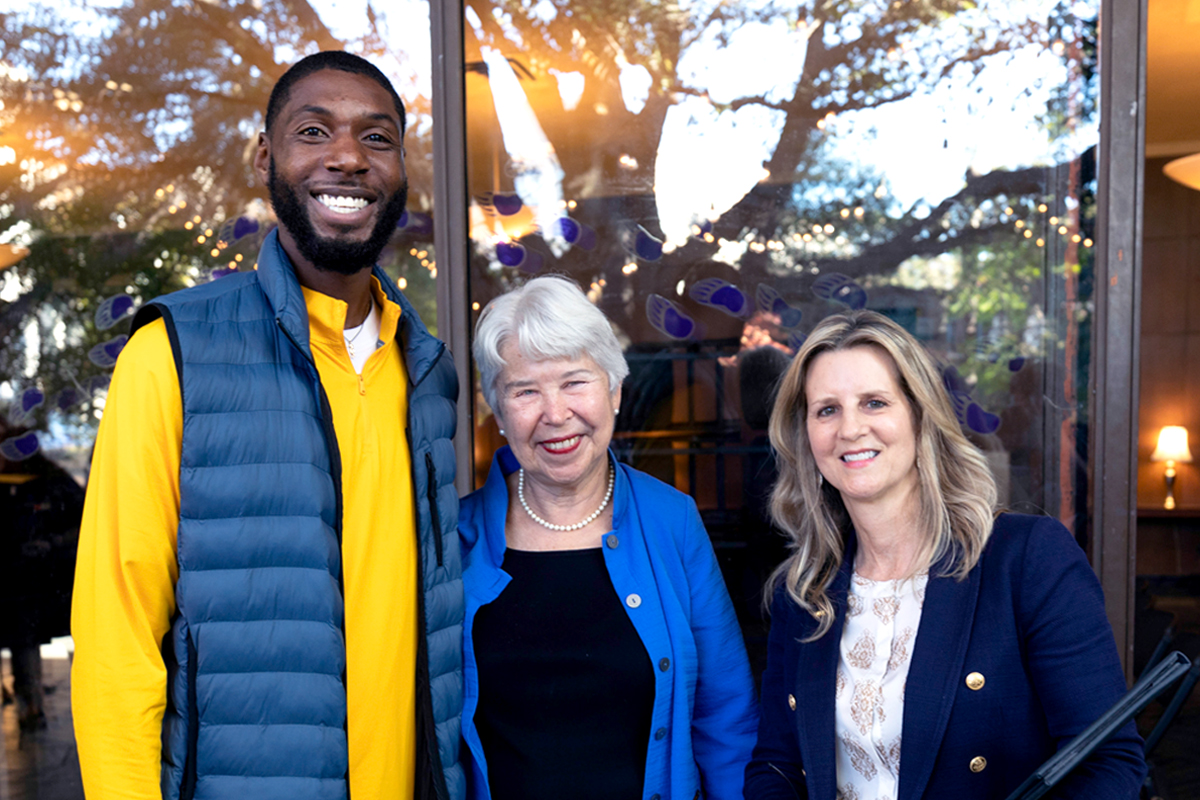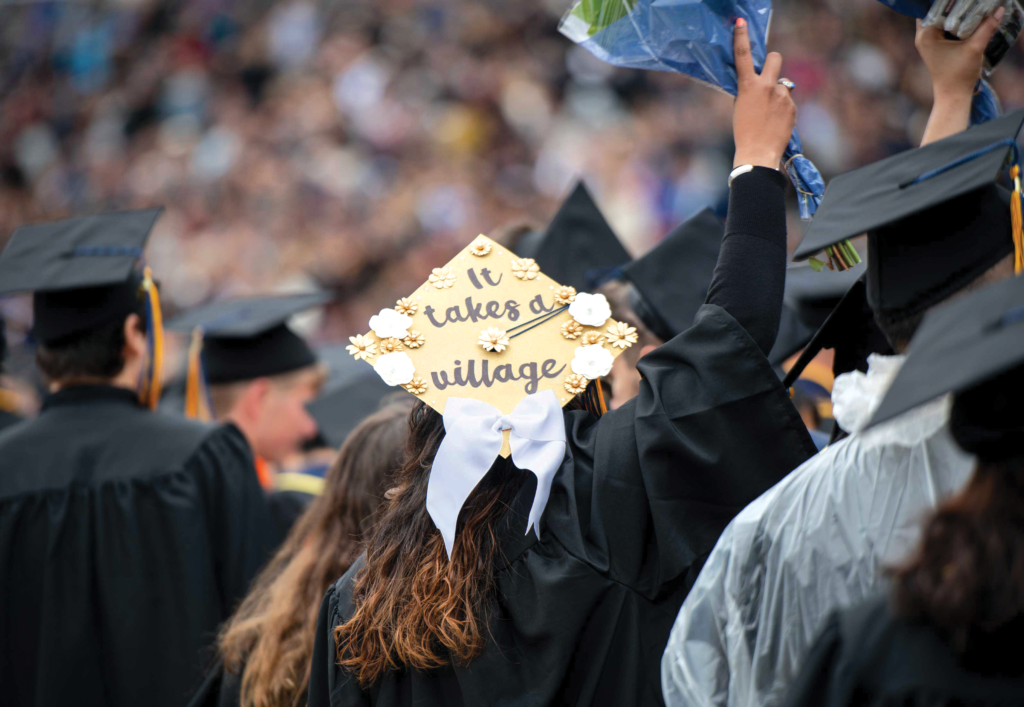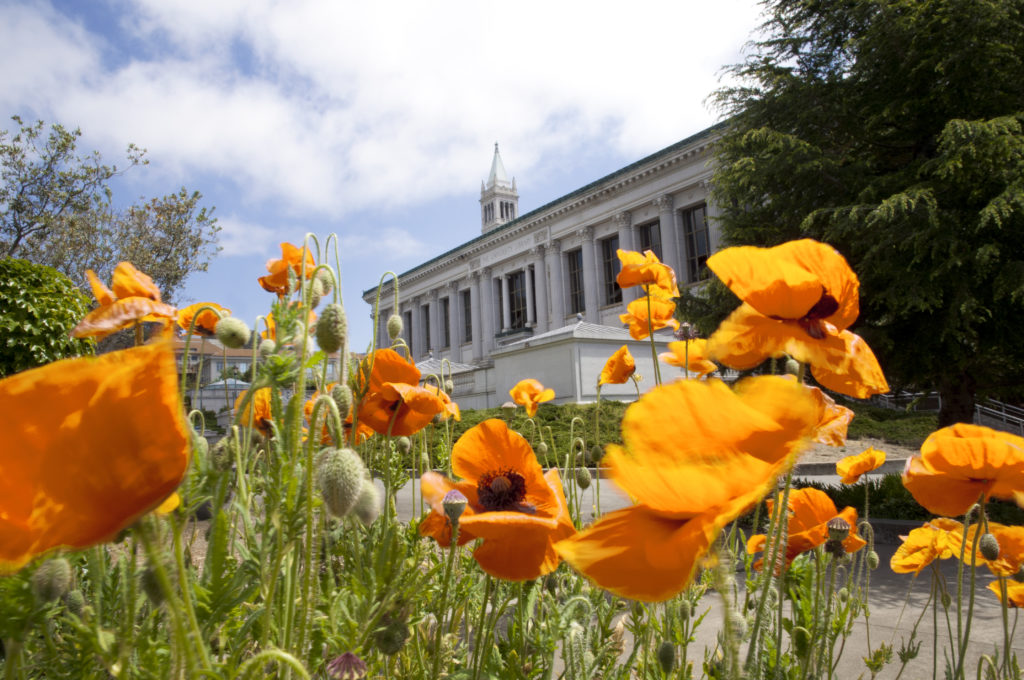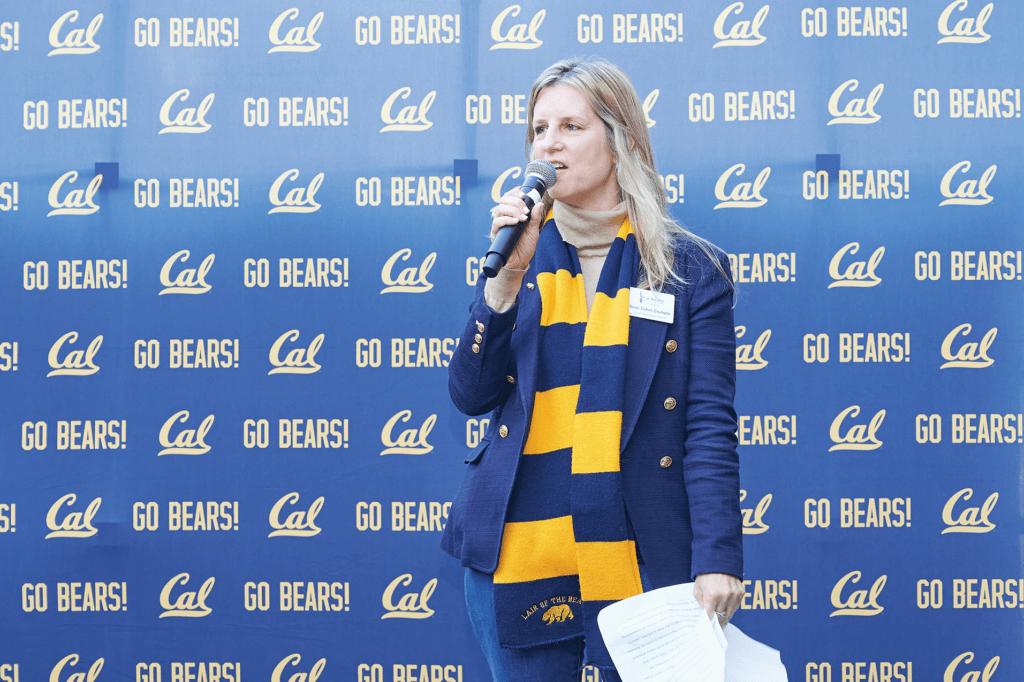Jason Gant ’06 is a professional learning designer and behavioral health coach who creates and provides resources for students. A product of UC Berkeley’s School of Public Health and Cal Athletics, Gant couldn’t always find mentors at Cal who had similar backgrounds as him. This challenge influenced his post-graduation work and commitment to supporting and serving the Cal community.
Gant actively volunteers for the Black Lives After College (BLAC) Alumni Chapter, which supports Black student athletes and equity in Cal Athletics. He also works directly with Cal Athletics to support student-athletes’ mental health and well being.
In 2022, the Cal Alumni Association launched the Cal Alumni Mentors program, a mentorship program that pairs first-generation, low-income, underrepresented, and underserved* UC Berkeley undergraduate students with alumni mentors who share similar backgrounds. Jason Gant was deeply involved with the development of Cal Alumni Mentors. As he creates tools and resources for the program, Gant helps address the challenge that he experienced as an undergrad and make mentors accessible to students.
The Cal Alumni Association spoke with Gant as part of the 2023 Big Give, UC Berkeley’s annual day of giving, about his undergrad experience and the development of the Cal Alumni Mentors program.
Where are you from? How did you choose Cal?
Jason Gant (JG): I’m from Bayview-Hunters Point in San Francisco. It’s a community that is often underserved and overlooked. Not many people go to UC Berkeley from there. They don’t think that they have the privilege to go to a school like that. So, there were no examples for me growing up of people going to a school like Cal in my neighborhood. Having the opportunity to choose to go there when I got in, how could I say no to the number one school in the world? That was just an easy yes: if Berkeley will have me, they have me.
What are some of your favorite memories from your time at Cal?
JG: I would say it would be walking on to the sports teams. A lot of people think, because I’m African American, that I got into Cal because of sports. Making the team on my own merit and my own hard work while graduating on time is something that I’m proud of. I was a three-sport walk on, actually. I played basketball, then walked onto the volleyball team as well as the track and field team, participating in the high jump.
There’s a double-edged sword having that accomplishment but still being looked down upon because people assume that I’m just an athlete. All of these different dichotomies and being able to navigate them through a system that is trying to push you out. Navigating all of that stress and intensity as a new student from an underprivileged, overlooked community right here in the Bay Area, and having the cultural awareness of how to show up in spaces in the Bay Area, was really difficult.
“That’s really the through line here: support. How do we support each other? How do we support ourselves so that we can be that light for someone else?”
Jason Gant ’06
In what ways have you continued your connection and commitment to Cal?
JG: My extensive work with Cal Athletics really introduced me to the Cal Alumni Mentors program. I work very closely with [Cal Athletics] to create spaces for student athletes to be human first. I have weekly meetings with the Cal Athletics department where we are designing programs around wellbeing, emotional intelligence, how to reduce stress, and how to refuel and reset yourself.
In the development of the Cal Alumni Mentors program, I have been involved in producing the trainings for the program, which include personal development training as well as professional development training. [In my work] I am a transformational coach who helps people to develop, transform, and get closer to their goals, dreams, and visions. Being a part of [Cal Alumni Mentors] gives me the chance to share some insights that worked for me. I also connect alumni to students so that alumni can share all of their expertise with the current students. That’s really the through line here: support. How do we support each other? How do we support ourselves so that we can be that light for someone else?
What was the thought process that went into creating the Cal Alumni Mentors program?
JG: The Cal Alumni Association did a great job in doing their research and due diligence before officially launching [the program]. There was a lot of work done with the CAA board, current students, student organizations, and mentors. There are many conversations and focus groups around what current students need, what they want, and what their capacity is. From all these conversations and research, it was clear that people wanted and needed training around what it means to be a mentee and a mentor. We’re developing the program to be a soft landing spot. The Cal Alumni Mentors program is geared towards first-gen, low income, underserved, and underrepresented communities, like my community, Bayview-Hunters Point in San Francisco, which is one of two Black neighborhoods still around now.
There was this alignment based on a steady, firm bedrock foundation of students needing support. If they’re gonna be weeded out, if they’re gonna be first-gen, if they’re from historical communities that have not experienced privilege, then we really need [to create] a soft landing spot supported by alumni who have navigated the system, have their own stories, and have had a chance to reflect. You went to Cal, the best university. Now, let’s pull back some of that expertise, information, and understanding from our alumni.
This program is really about community. When you think about community and going home to your community, you think about laying your head down in peace. That’s where the soft landing spot comes from, that we’re creating a cycle of community and enhancing relationships across the globe for folks that may not have been ever able to meet each other. Because of this program and the extensive work at CAA, we now have the opportunity to leverage not only alumni but also the student population.
How would you describe the Cal students you’ve worked with?
JG: Extraordinary, high-achieving, very green, and impressive.
Is there an interaction with a student that stands out to you from the Cal Alumni Mentors program?
JG: The one that sticks out really points to the importance of the program. A student from Nicaragua, who worked in the fields over the summer, came to campus and walked around and heard people discussing their summer travels and summer experiences and hearing about trips to Paris. They could not fathom that reality, yet here they were on a campus and hearing about this. And it’s like: Now you’re one step closer to that reality.
Being a first-gen student myself, I think about how this is why we have this program. It is very easy to come from Nicaragua or wherever you are in the world and say, “Hey, I’m going to Cal. That’s great. I look forward to it,” but then you show up and realize you guys are in a different club. “How do I fit in?” People know how to use the resources and ask the questions that I don’t, but I need the same support, so how does that work? Those are just some of the questions that I think of when I reflect on their story and when I think about the different people in the program that I’ve met.
Thinking about your time as a student at Cal, was there anyone whose support was really meaningful to you?
JG: The person that comes to mind right now is Bernard Griego. He was a public health professor. It was his enthusiasm and playfulness that just came across to me as human, not putting up a front about how important his subject was or putting down other subjects. There was an authentic love for what he’s doing, and that is oozing out into me.
Are there any big visions or plans for the Cal Alumni Mentors program for the upcoming year and beyond?
JG: There’s such a large population in the program with over 450 folks spread out throughout the world. We’re still understanding what some of those milestones are going to be and developing these checkpoints. That’s why we have monthly trainings and provide opportunities for mentors to connect, so that we can flesh out these stories, what’s working, what’s not working. But most importantly, we’re understanding how we can support students. If they don’t have the historical background to understand how to navigate a predominantly white institution, then having specific resources for that would be the most effective and efficient for us, rather than having to refer out to other student organizations that are good at supporting students but not from this historical background.
“This program is really about community. When you think about community and going home to your community, you think about laying your head down in peace. That’s where the soft landing spot comes from, that we’re creating a cycle of community and enhancing relationships across the globe for folks that may not have been ever able to meet each other.”
Jason Gant ’06
What are some ways that alumni can support CAA programs such as the Cal Alumni Mentors program?
JG: There are unlimited ways to support. Having more people to support our mentors and our mentees would help. In a recent mentor meetup, an alum shared that his mentee/mentor relationship is going so well that the conversation expanded to his mentees’ friend group, to the point where they’re joining the mentorship meetings. Now, he’s taking on three to four friends, and his impact is reaching further than the one-to-one relationship that is created from being in the mentorship program.
Just to know the mentors are overextending themselves is beautiful, but it’s also an opportunity for our program. We could use more mentors to take on these students that are now hooked and interested in receiving support, so they can have their own mentee or mentor versus having to join someone else’s. Students are out there who need support, want support, and have no idea what mentorship looks like, especially targeting low-income, underserved communities and first-gen students. Right now, we have over 450 people in the program. We want to continue the program. With more mentors that know about the program, there’s just more experiences and stories to share. From those stories are the connections and relationships that create a soft landing spot. The opportunities are endless. If folks are interested and curious in getting involved, let’s see what we can build together.
What advice would you give to alumni who want to give back to UC Berkeley or stay involved with the campus?
JG: Do it. Reach out and let us know that you’re interested. That’s where the conversation can begin. We want to use our extensive Cal community and all of their expertise.
Gifts from alumni and friends like you helped launch the Cal Alumni Mentors program in 2022 to support first-generation, low-income, underrepresented, and underserved students. Your donation to The CAA Fund during Big Give this year can support the continuation of the Cal Alumni Mentors program as well as our many other student and alumni resources. Please consider making a donation.
*CAA has identified Black/African/African American, Chicanx/Latinx, Native American/Alaska Native, Southeast Asian, Pacific Islander, and LGBTQ+ as underrepresented and/or underserved groups on campus.





















